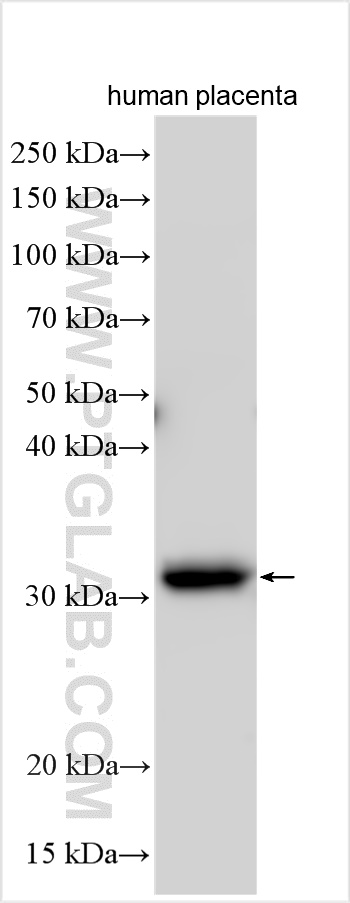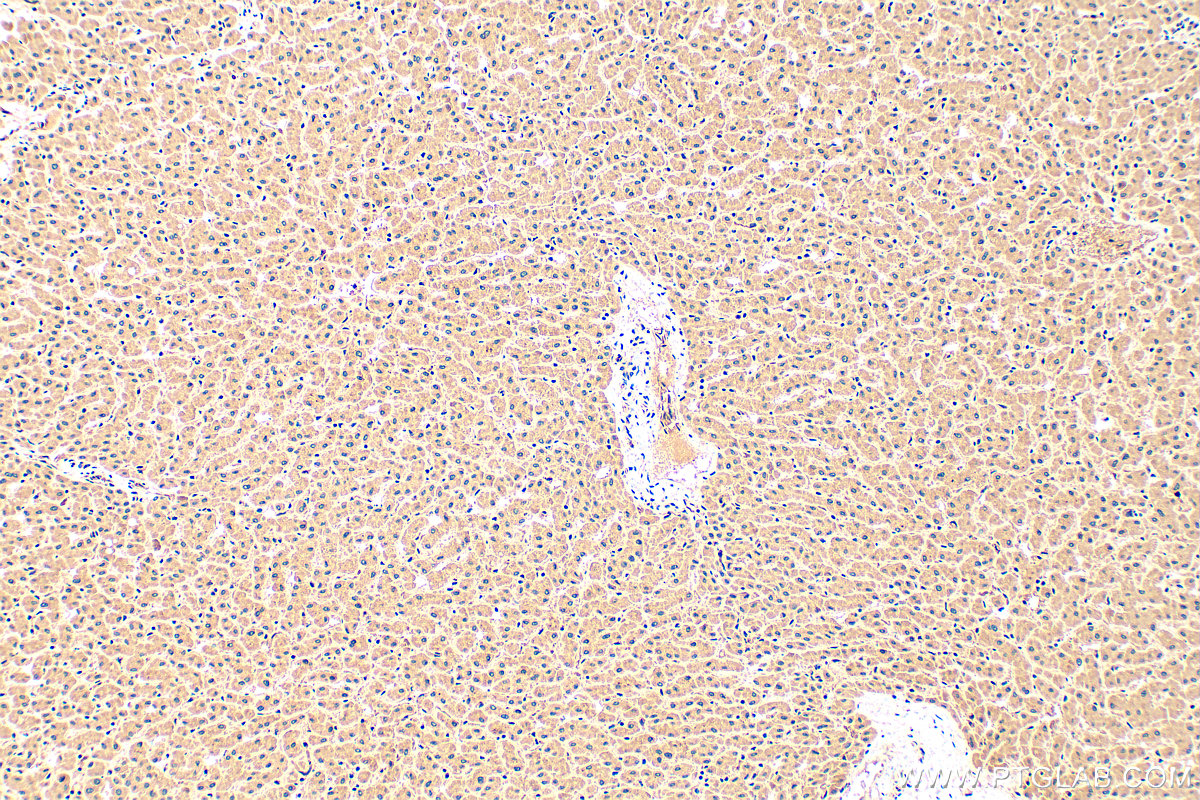验证数据展示
经过测试的应用
| Positive WB detected in | human placenta tissue |
| Positive IHC detected in | human liver tissue Note: suggested antigen retrieval with TE buffer pH 9.0; (*) Alternatively, antigen retrieval may be performed with citrate buffer pH 6.0 |
推荐稀释比
| 应用 | 推荐稀释比 |
|---|---|
| Western Blot (WB) | WB : 1:500-1:2000 |
| Immunohistochemistry (IHC) | IHC : 1:50-1:500 |
| It is recommended that this reagent should be titrated in each testing system to obtain optimal results. | |
| Sample-dependent, Check data in validation data gallery. | |
产品信息
14935-1-AP targets CLIC2 in WB, IHC, ELISA applications and shows reactivity with human samples.
| 经测试应用 | WB, IHC, ELISA Application Description |
| 经测试反应性 | human |
| 免疫原 |
CatNo: Ag6766 Product name: Recombinant human CLIC2 protein Source: e coli.-derived, PGEX-4T Tag: GST Domain: 1-210 aa of BC005367 Sequence: MILWLKGVKFNVTTVDMTRKPEELKDLAPGTNPPFLVYNKELKTDFIKIEEFLEQTLAPPRYPHLSPKYKESFDVGCNLFAKFSAYIKNTQKEANKNFEKSLLKEFKRLDDYLNTPLLDEIDPDSAEEPPVSRRLFLDGDQLTLADCSLLPKLNIIKVAAKKYRDFDIPAEFSGVWRYLHNAYAREEFTHTCPEDKEIENTYANVAKQKS 种属同源性预测 |
| 宿主/亚型 | Rabbit / IgG |
| 抗体类别 | Polyclonal |
| 产品类型 | Antibody |
| 全称 | chloride intracellular channel 2 |
| 别名 | XAP121 |
| 计算分子量 | 28 kDa |
| 观测分子量 | 28-30 kDa |
| GenBank蛋白编号 | BC005367 |
| 基因名称 | CLIC2 |
| Gene ID (NCBI) | 1193 |
| RRID | AB_3669195 |
| 偶联类型 | Unconjugated |
| 形式 | Liquid |
| 纯化方式 | Antigen affinity purification |
| UNIPROT ID | O15247 |
| 储存缓冲液 | PBS with 0.02% sodium azide and 50% glycerol, pH 7.3. |
| 储存条件 | Store at -20°C. Stable for one year after shipment. Aliquoting is unnecessary for -20oC storage. |
背景介绍
CLIC2 (chloride intracellular channel 2), also known as CLCNL2. It is expected to be located in cytoplasm and membrane. CLIC-2 exists as a monomer. It also has an unusual enzyme activity profile. While the CXXC active site motif is conserved between CLIC-2 and the glutaredoxins, no thiol transferase activity was detected. In contrast, low glutathione peroxidase activity was recorded. CLIC-2 was found to be widely distributed in tissues including heart and skeletal muscle. Functional studies showed that CLIC-2 inhibited cardiac ryanodine receptor Ca2+ release channels in lipid bilayers when added to the cytoplasmic side of the channels and inhibited Ca2+ release from cardiac sarcoplasmic reticulum vesicles. The calculated molecular weight of CLIC2 is 28 kDa.
实验方案
| Product Specific Protocols | |
|---|---|
| IHC protocol for CLIC2 antibody 14935-1-AP | Download protocol |
| WB protocol for CLIC2 antibody 14935-1-AP | Download protocol |
| Standard Protocols | |
|---|---|
| Click here to view our Standard Protocols |



